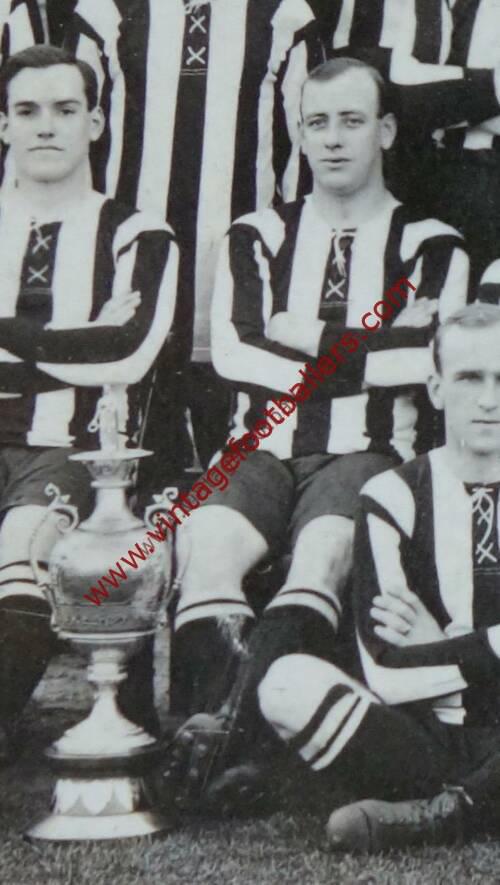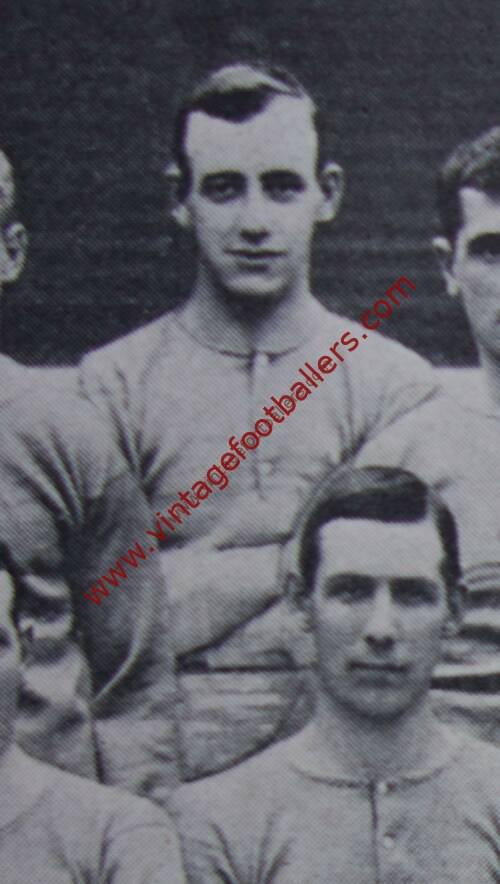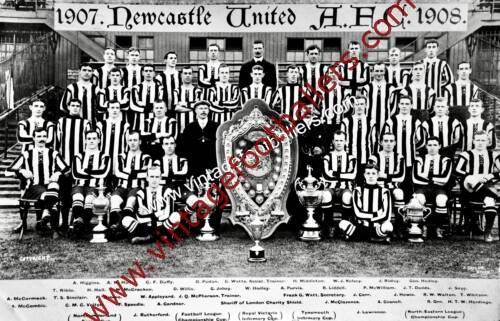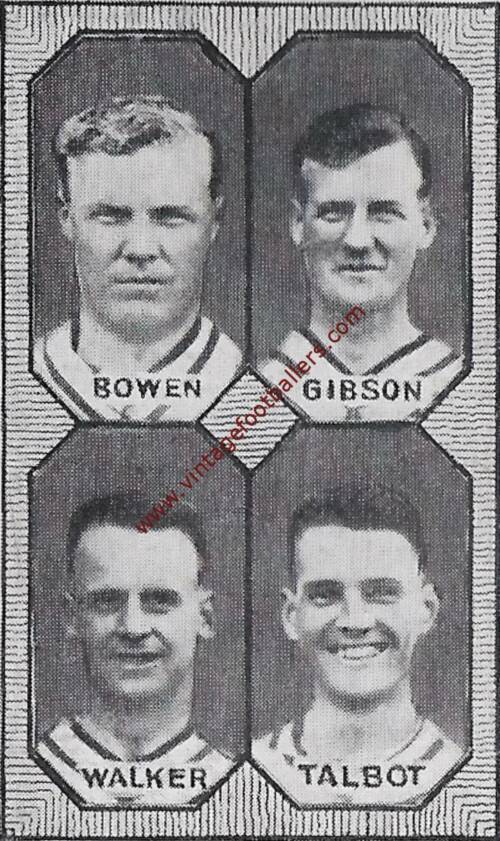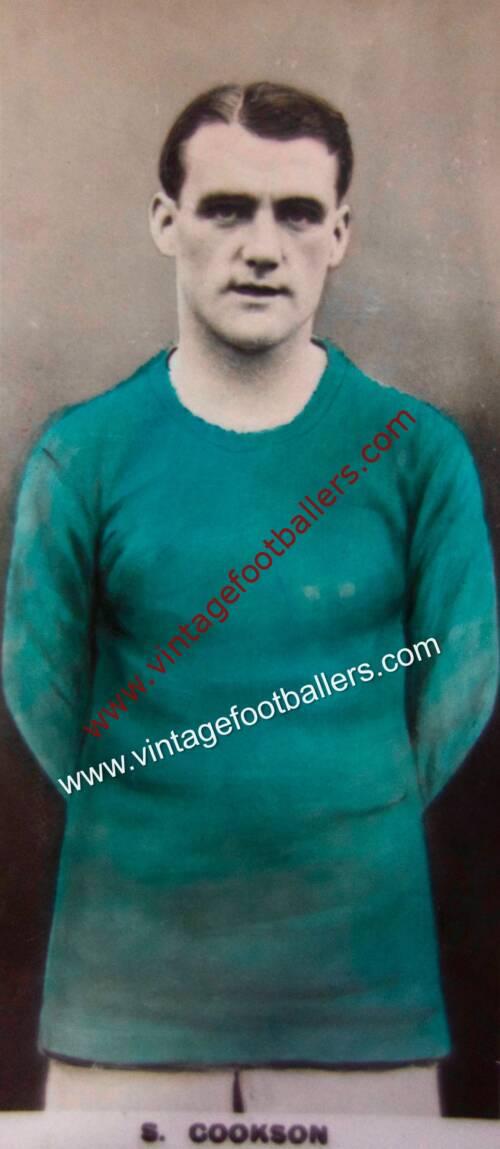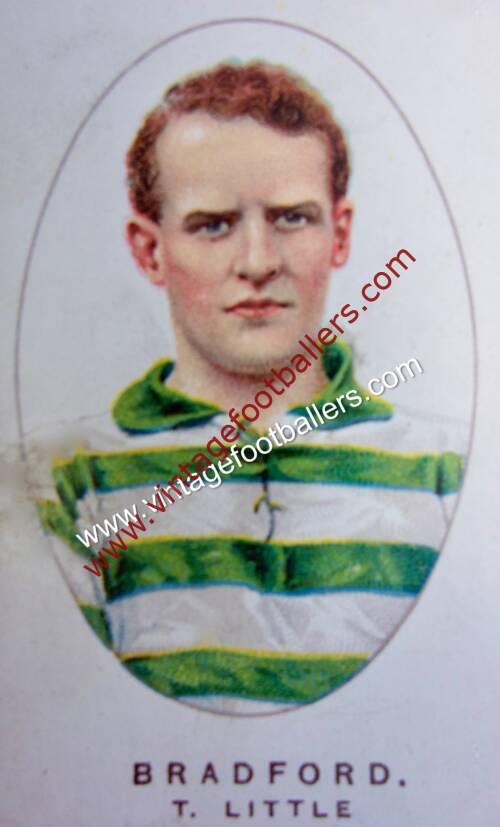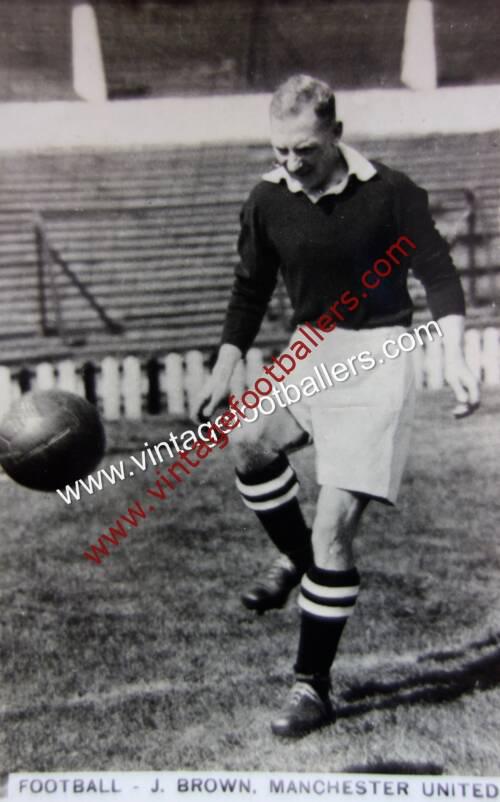Description
Dumbarton born inside forward Finlay Speedie began his football career with Arniston Thistle in 1895 and played for Clydebank Juniors in 1896 before joining Dumbarton, still an amateur in 1897, without playing for their first eleven. He joined Duntocher Hibs in 1898 before turning professional with Strathclyde in 1899. He was signed by Glasgow Rangers in October 1900 and immediately made his Scottish League debut against Dundee in a 4-2 victory at Ibrox. He was first selected for Scotland against Wales at The Cardiff Arms Park in March 1903, scoring in a 1-0 victory, and played in both of their remaining Home Championship fixtures over the next few weeks, firstly a 2-0 defeat to Ireland at Parkhead, then scoring the equaliser in a 2-1 victory over England at Bramall Lane in early April.
Playing under William Wilton at Rangers he won two Scottish League Championships, a Scottish Cup in 1903 (being a runner up in the 1904 and 1905 Finals), two Glasgow Cups, a Charity Cup and the 1901 Glasgow Exhibition Cup. In March 1905 he played for The Scottish League in a 3-2 defeat to The Football League at Hampden Park but soon thereafter lost his place in the Rangers team before a move to First Division high flyers Newcastle United in September 1906 for £600 after 50 goals in 120 appearances for The Gers,
He made his Football League debut at the end of September against Sheffield Wednesday, scoring twice in a 5-1 victory at St James’ Park and scoring 10 League goals as Newcastle won the League Championship in his debut season. He stayed on Tyneside for another season and played in their surprise 3-1 defeat to Wolverhampton Wanderers in the 1908 FA Cup Final before joining Oldham Athletic in a joint deal with Bill Appleyard in June 1908 after 14 goals in 60 appearances for The Magpies.
He stayed at Oldham for most of a single season scoring 6 times in 17 appearances and then moved to Bradford Park Avenue for a two months in April 1909, scoring once in 5 matches before the end of the season, when he re-joined Dumbarton that September. He won the Scottish Second Division title in 1911 with The Sons, scoring 35 goals in 126 appearances before retiring from football in 1914.
